 86 citations,
May 2013 in “American journal of obstetrics and gynecology”
86 citations,
May 2013 in “American journal of obstetrics and gynecology” Gynecologists should provide comprehensive care for transgender patients, including mental health evaluation, hormone therapy, and surgical options, while monitoring for side effects and ensuring patient safety.
 January 2012 in “S. Karger AG eBooks”
January 2012 in “S. Karger AG eBooks” The document concludes that transsexual individuals often experience improved quality of life after transitioning, despite higher risks of psychiatric issues and mortality.
 146 citations,
December 2016 in “Translational Andrology and Urology”
146 citations,
December 2016 in “Translational Andrology and Urology” Hormone therapy is essential for transgender individuals but requires careful management due to possible metabolic effects.
 28 citations,
October 2018 in “Clinical Obstetrics and Gynecology”
28 citations,
October 2018 in “Clinical Obstetrics and Gynecology” Testosterone therapy seems safe and effective for transgender men with proper care, but more long-term research is needed.
 21 citations,
November 2014 in “Journal of Endocrinological Investigation”
21 citations,
November 2014 in “Journal of Endocrinological Investigation” Cross-sex hormone therapy is important for managing gender dysphoria and requires careful monitoring and healthcare provider education.
 10 citations,
May 2009 in “Sexual and Relationship Therapy”
10 citations,
May 2009 in “Sexual and Relationship Therapy” The document concludes that hormone therapy is essential for treating gender dysphoria, with specific drugs and monitoring protocols recommended for safety and effectiveness.
 66 citations,
October 2013 in “Current Opinion in Endocrinology, Diabetes and Obesity”
66 citations,
October 2013 in “Current Opinion in Endocrinology, Diabetes and Obesity” The conclusion is that published guidelines are improving transgender medical care, but more research and education in transgender medicine are needed.
 855 citations,
June 2009 in “The Journal of Clinical Endocrinology & Metabolism”
855 citations,
June 2009 in “The Journal of Clinical Endocrinology & Metabolism” The guideline recommends mental health involvement in diagnosing gender identity disorder and outlines hormone and surgical treatment protocols, emphasizing safety, informed consent, and long-term monitoring.
May 2015 in “Cancer research” After chemotherapy for early breast cancer, 33.4% of patients had long-term significant hair loss, with some hair regrowth over time, but treatments for hair loss were largely ineffective.
 82 citations,
May 2009 in “BJCP. British journal of clinical pharmacology/British journal of clinical pharmacology”
82 citations,
May 2009 in “BJCP. British journal of clinical pharmacology/British journal of clinical pharmacology” Caffeine penetrates human skin in lab tests similarly to real-life conditions, but actual skin use is still essential for accurate results.
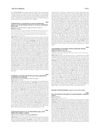 November 2010 in “Value in Health”
November 2010 in “Value in Health” Real-life dosing of biologics for plaque psoriasis often deviates from recommended guidelines, especially for high-need patients.
 2 citations,
October 2023 in “Dermatology and therapy”
2 citations,
October 2023 in “Dermatology and therapy” Alopecia areata severely impacts quality of life, causing anxiety, depression, and work impairment.
 January 2025 in “Journal of Cutaneous Immunology and Allergy”
January 2025 in “Journal of Cutaneous Immunology and Allergy” Baricitinib is effective for treating severe alopecia areata in Japanese patients, but long-term safety needs more study.
 September 2024 in “Journal of the European Academy of Dermatology and Venereology”
September 2024 in “Journal of the European Academy of Dermatology and Venereology” Baricitinib effectively reduces hair loss in severe alopecia areata with mild side effects.
 9 citations,
February 2022 in “Dermatology and therapy”
9 citations,
February 2022 in “Dermatology and therapy” An emollient PLUS balm with ADE-G1 significantly improved skin dryness and quality of life in cancer patients with xerosis.
 March 2024 in “Indian Journal of Dermatology”
March 2024 in “Indian Journal of Dermatology” Iron supplements may improve hair loss satisfaction even if initial iron levels are normal.
Antifungal treatment reduced asthma exacerbations and corticosteroid use but its overall benefit is unclear.
 August 2024 in “Journal of Clinical Medicine”
August 2024 in “Journal of Clinical Medicine” Systemic treatments like hydroxychloroquine and cyclosporine A help with Lichen Planopilaris and Frontal Fibrosing Alopecia, but ongoing treatment is needed.
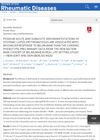
Patients with acute and subacute skin lupus respond faster to belimumab than those with chronic skin lupus.
 188 citations,
October 2012 in “The AAPS Journal”
188 citations,
October 2012 in “The AAPS Journal” The document concludes that developing generic topical drugs requires ensuring they match the original in quality, composition, and structure, and often involves complex testing and regulatory steps.
 October 2023 in “Frontiers in medicine”
October 2023 in “Frontiers in medicine” Comprehensive screening for infections is crucial before starting JAK inhibitors in alopecia areata patients.
 August 2024 in “Frontiers in Public Health”
August 2024 in “Frontiers in Public Health” Alopecia Areata severely impacts mental health, causing anxiety and depression, affecting quality of life.
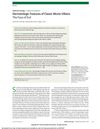 41 citations,
April 2017 in “JAMA Dermatology”
41 citations,
April 2017 in “JAMA Dermatology” Most classic movie villains have skin conditions, unlike the heroes, which may cause bias against real people with similar conditions.
 17 citations,
June 2018 in “Sexual Medicine Reviews”
17 citations,
June 2018 in “Sexual Medicine Reviews” The document concludes that non-operative treatment for gender dysphoria is safe and effective, and hormone therapy does not increase cancer risk.
 11 citations,
April 2016 in “Dermatologic Surgery”
11 citations,
April 2016 in “Dermatologic Surgery” Expert surgeons have a lower rate of hidden damage to hair during hair transplant procedures than beginners.
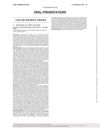 September 2019 in “Rheumatology advances in practice”
September 2019 in “Rheumatology advances in practice” Diagnosing and treating rapidly worsening lung disease is difficult and requires better guidelines and understanding.
 19 citations,
January 2001 in “Dermatology + psychosomatics”
19 citations,
January 2001 in “Dermatology + psychosomatics” The review concluded that male pattern baldness is mostly seen negatively, affecting attractiveness and social appeal.
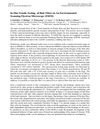 August 2007 in “Microscopy and Microanalysis”
August 2007 in “Microscopy and Microanalysis” Hair fibers break by cuticle cell slipping, shape changing, cuticle fraying, and surface cracking when stretched under specific conditions.
 April 2012 in “Journal of the American Academy of Dermatology”
April 2012 in “Journal of the American Academy of Dermatology” Clofazimine effectively treated ashy dermatosis in a patient.
 50 citations,
March 2021 in “Journal of investigational allergology & clinical immunology”
50 citations,
March 2021 in “Journal of investigational allergology & clinical immunology” Dupilumab is being tested for many new skin, respiratory, and gastrointestinal conditions.



























